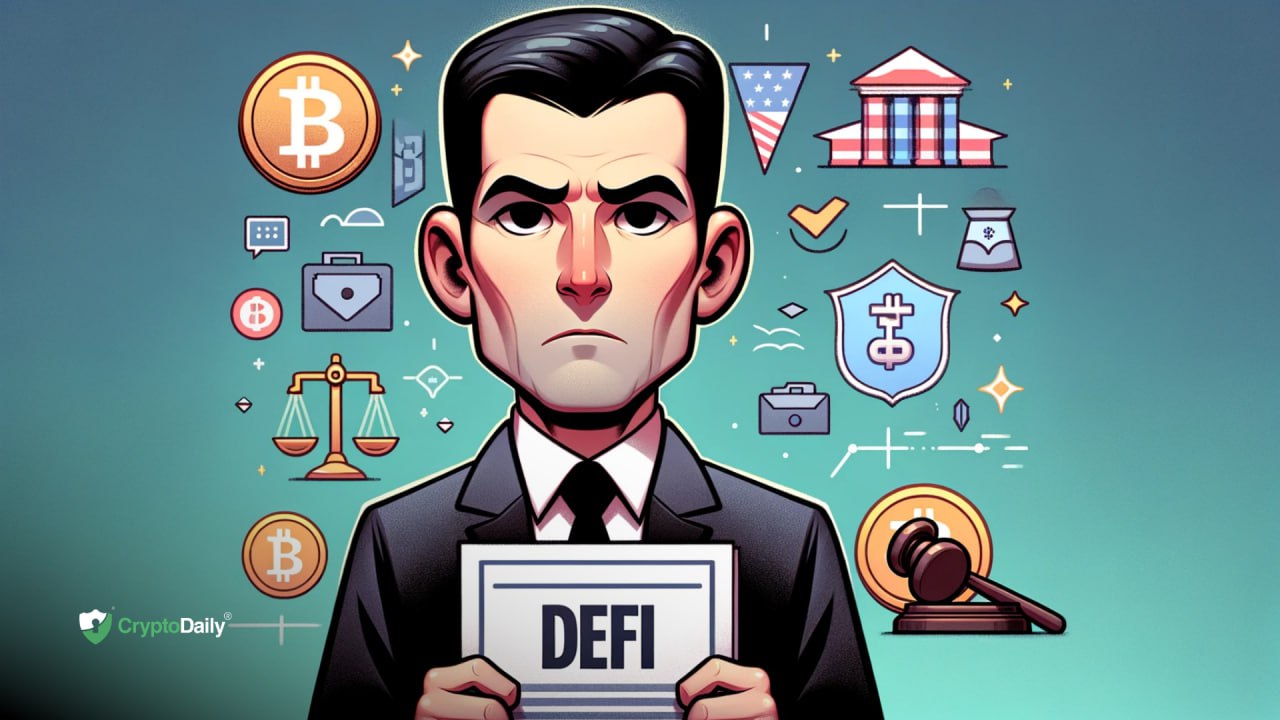
It is undeniable that the world is in dire need of a decentralized financial system and a decentralized internet. The current centralized system we have been living with has left us vulnerable to the whims of powerful institutions and governments, while also leaving us with a lack of control over our own data and finances. Decentralized finance and a decentralized internet will bring a new level of freedom and security to individuals, allowing them to securely store and transfer their own data and assets without having to rely on third parties. This will also have a positive effect on the global economy, as it will enable peer-to-peer transactions, increase competition, and expand access to financial products and services to everyone.
Exploring the Benefits of a Decentralized Internet
The concept of a decentralized internet is one that has been gaining traction in recent years. As our world becomes increasingly connected, it is important to consider the implications of having a system of communication and information sharing that is not entirely owned or controlled by a single entity. A decentralized internet is one that does not rely on centralized servers, providing users with greater control and ownership over their data and communications. The most apparent benefit of a decentralized internet is the increased security that it provides. Without a single point of failure, it is far more difficult for hackers to gain access to sensitive information. Furthermore, the distributed nature of a decentralized network means that it is more resistant to censorship, allowing users to access information without fear of being blocked or monitored. A decentralized internet also offers increased privacy for users. By removing the need for a centralized server, users can communicate and store data without the need to share their personal information. This helps to reduce the risk of having sensitive information exposed to unwanted third parties. Finally, a decentralized internet provides users with greater autonomy over their data. By removing the reliance on a centralized server, users can control the storage and access of data, helping to ensure that their information remains secure and private. The potential of a decentralized internet is immense, and it is clear that such a system could provide users with a variety of benefits. Increased security, privacy, and autonomy are just a few of the advantages that a decentralized internet could offer, making it an attractive option for those looking to protect their data and communications.
Understanding the Basics of Decentralized Finance
Decentralized finance (DeFi) is a rapidly developing sector of the financial industry that has been gaining traction among investors and technology enthusiasts alike. DeFi is a term used to describe a financial system that operates without the need for a central authority or intermediary. This type of system is powered by blockchain technology and utilizes smart contracts to facilitate transactions between users. DeFi is a revolutionary concept that can be used to create a wide range of financial products and services. It has the potential to revolutionize traditional banking by providing individuals and businesses with access to financial services without the need for a central authority. With DeFi, users can access a range of services such as lending, borrowing, insurance, and trading without the need for a third party or intermediary. One of the most notable features of DeFi is that it operates entirely on the blockchain. This means that transactions are secure, transparent, and immutable. By eliminating the need for a third-party intermediary, users can be assured that their funds are safe and secure. In addition to its security features, DeFi also offers users greater control over their finances. Since the transactions are recorded on the blockchain, users can track and verify their transactions at any time. This provides users with greater control over their own money, as well as greater flexibility in how they use their funds. DeFi also offers a wide range of financial instruments that can be used to generate returns. For example, users can take advantage of decentralized lending platforms to borrow funds and earn interest, or use decentralized trading platforms to trade digital assets. This type of financial freedom can be extremely beneficial to those looking to maximize their returns on investments. DeFi is still in its early stages, and it is important to understand the risks associated with investing in DeFi projects. The sector is highly volatile, and the underlying technology is still in its infancy. As such, it is important to do your research and understand the potential risks before investing in any DeFi project. Overall, DeFi offers a wide range of possibilities for individuals and businesses looking to take control of their finances. By utilizing the power of the blockchain, DeFi projects have the potential to revolutionize the financial sector. It is important to understand the risks associated with DeFi before investing and always do your research before investing in any project.
The Growing Popularity of Decentralized Solutions
In recent years, decentralized solutions have become increasingly popular within the tech world, offering users a variety of advantages over traditional centralized solutions. Decentralized solutions are defined as systems or networks that are not reliant on a single, centralized authority or entity. Instead, they rely on a distributed network of computers to coordinate and manage tasks. The most notable example of a decentralized system is blockchain technology, which has become a popular tool for creating digital currencies such as Bitcoin. Blockchain networks are composed of a distributed ledger of transactions, which are stored and verified across multiple computers. This makes them virtually immune to hacking and other forms of digital attacks. As a result, blockchain technology is becoming widely adopted in the financial industry, and is being used to create new forms of digital currencies and payment systems. Decentralized solutions also offer users greater control over their data. Unlike traditional centralized systems, in which a single entity is responsible for managing and storing data, decentralized systems allow users to store their data on their own computers. This gives users the ability to control who has access to their data, preventing unauthorized access and providing greater security. Finally, decentralized solutions are more efficient and cost-effective than traditional centralized solutions. By eliminating the need for a centralized authority, decentralized solutions are able to reduce overhead costs, streamline operations, and increase overall efficiency. This makes them an attractive option for businesses and organizations looking to reduce their costs and increase their profits. In conclusion, decentralized solutions are becoming increasingly popular due to their ability to provide users with greater control, security, and efficiency. As the technology continues to evolve and become more widely adopted, it is likely that decentralized solutions will become the norm in the near future.
How Decentralized Finance Can Help Eliminate Poverty
Decentralized finance (DeFi) is a rapidly evolving sector of the cryptocurrency economy that has the potential to revolutionize the global economy and help eliminate poverty. By providing access to financial services through decentralized, blockchain-based systems, DeFi has the potential to give people access to banking and financial services in places where they have previously been inaccessible or prohibitively expensive. DeFi can benefit people living in poverty in several ways. First, it can provide access to financial services, such as loans and savings, that are often unavailable or out of reach for those living in poverty. These services can provide a way for people to start businesses, build wealth, and take control of their finances. Second, DeFi can provide access to financial resources that are out of reach for many in poverty. For example, through DeFi platforms, people can access investments, philanthropic funds, and insurance products that are otherwise unavailable or too expensive. This can help people better manage their finances and plan for the future. Third, DeFi can help eliminate poverty by providing people with access to cryptocurrency and blockchain technology. Cryptocurrency can provide a store of value and a way to transact without relying on traditional financial institutions. This can help people living in poverty to diversify their portfolios and build financial resilience. Finally, DeFi can help reduce poverty by providing access to global markets and goods. By allowing people to access goods and services that may not be available in their local area, DeFi can help people to increase their incomes and lift themselves out of poverty. In conclusion, DeFi has the potential to revolutionize the global economy and help eliminate poverty. By providing access to financial services, resources, and markets, DeFi has the potential to open up new opportunities and help people to better manage their finances and build financial resilience.
The Global Impact of Decentralized Solutions on the Financial System
The decentralized finance (DeFi) movement has had an immense impact on the global financial system. DeFi is an umbrella term for a wide range of blockchain-based financial services and products, including lending, borrowing, decentralized exchanges, asset tokenization, and more. The promise of DeFi is to provide access to financial services for those who are unbanked or underbanked, and to provide a more secure and equitable financial system for all. These benefits have made DeFi a popular choice for individuals, businesses, and governments alike. The rise of DeFi has been driven by a number of factors, including the availability of low-cost blockchain technology and the increasing acceptance of digital currencies. By providing access to financial services regardless of location, DeFi has opened up a whole new world of financial opportunities. This has allowed people to access loans and investments, manage their finances more efficiently, and even start their own businesses. The impact of DeFi on the global financial system has been significant. By providing access to a wide range of financial services, DeFi has helped to reduce the costs associated with traditional banking and financial services. Additionally, DeFi has enabled the development of innovative new products and services, such as smart contracts, automated trading bots, and more. The potential of DeFi is yet to be fully realized, and its impact on the global financial system will likely continue to grow in the years to come. In particular, DeFi has the potential to revolutionize areas such as banking and trading, providing a reliable and secure alternative to traditional financial services. The possibilities are endless, and it is clear that DeFi is here to stay.
It is clear that the world is beginning to realize the importance of decentralization in both finance and the internet. Decentralized technologies can provide a more secure, reliable, and inclusive platform for users all over the world. As more and more people become aware of the advantages of decentralization, it is likely that decentralized technologies will become an integral part of our everyday lives. Decentralization is the future of finance and the internet, and it is up to us to make sure that it is implemented in a way that is equitable and beneficial for all.





